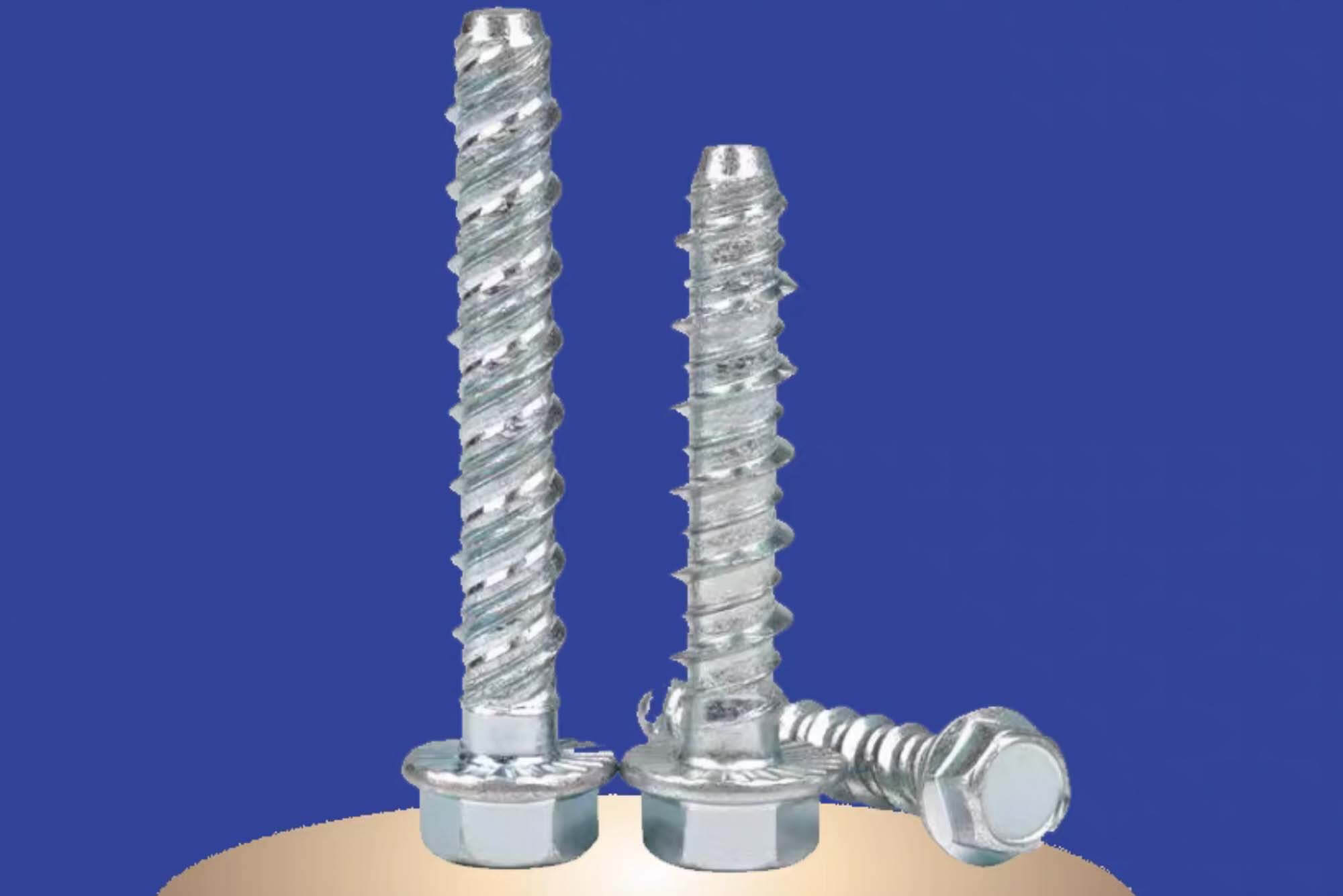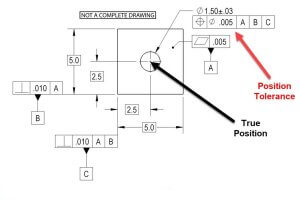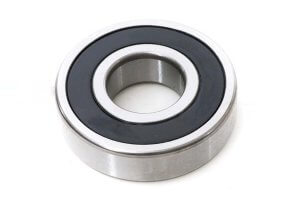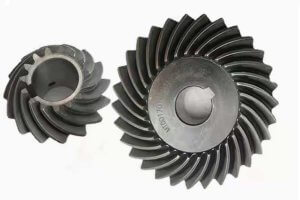Introduction
Anchor bolts are an integral part of modern construction, serving as the foundation for structures ranging from residential buildings to massive infrastructure projects like bridges, towers, and offshore platforms. Whether you’re working on a building project, machinery installation, or industrial construction, choosing the right anchor bolts is critical for ensuring that your structure remains secure and durable.
Having spent years in the construction and engineering sectors, I’ve had the opportunity to work on numerous projects where the selection and quality of anchor bolts could make or break the entire project. One common theme I’ve found is the importance of precision and customization—qualities that CNC (Computer Numerical Control) technology has brought to the manufacturing of anchor bolts. Through custom machining, CNC allows for the precise production of anchor bolts tailored to meet the specific needs of each project.Through my experience, it’s become clear that custom CNC anchor bolts play a pivotal role in maximizing both strength and durability, especially in challenging environments and demanding applications.
In this article, we will explore why custom CNC anchor bolts are indispensable in structural applications, how CNC technology revolutionizes anchor bolt production, and how selecting the right anchor bolts ensures the safety, longevity, and performance of your construction projects.
Types of Anchor Bolts and Their Applications
Anchor bolts come in many shapes, sizes, and configurations, and their selection depends largely on the specific application and load requirements. Understanding the different types of anchor bolts can make the difference between a successful project and a potential structural failure.
Types of Anchor Bolts
- Standard Anchor Bolts
Standard anchor bolts are mass-produced bolts that are commonly used in everyday construction projects. While these bolts can meet basic requirements, they may not always deliver the precision and strength needed for high-stakes projects like bridges or offshore platforms. However, they are widely used for typical structural applications and offer affordability and reliability. - Custom Anchor Bolts
Custom anchor bolts are tailored to meet the specific needs of a project. Using CNC technology, custom anchor bolts can be manufactured with exact specifications, making them perfect for projects that require high precision, strength, or specialized materials. For instance, CNC anchor bolts can be designed to withstand extreme environmental conditions such as high winds, seismic activity, or exposure to corrosive elements.
Common Types of Anchor Bolts
- U-Bolts
U-bolts are characterized by their U-shape and are often used for securing pipes, cables, or other cylindrical items to surfaces. They are also used for mounting equipment in construction and industrial projects. - L-Bolts
L-bolts have a 90-degree angle and are typically used to anchor structural steel to concrete. These bolts are ideal for applications where the anchor needs to be firmly embedded in a structure or material. - Straight Shaft Bolts
These bolts are commonly used to anchor equipment to concrete surfaces or to secure structural elements in place. They come in a variety of sizes and thread configurations and are ideal for load-bearing applications. - Expansion Anchor Bolts
These bolts expand once inserted into a drilled hole, creating a tight fit. Expansion bolts are ideal for applications where the material to which the bolt is being anchored cannot be drilled deeply or consistently. - Chemical Anchor Bolts
Chemical anchor bolts use resin-based adhesives to hold the bolt in place. They are ideal for masonry applications and offer higher holding strength than traditional expansion bolts.
Industry-Specific Applications for Anchor Bolts
- Construction: Anchor bolts are widely used in construction to fasten structural elements to foundations, ensuring the safety of buildings and other infrastructure.
- Heavy Machinery: In manufacturing facilities, anchor bolts are often used to secure heavy machinery and equipment to foundations to prevent shifting and to absorb vibrations.
- Offshore & Oil and Gas: Offshore drilling platforms and oil rigs require anchor bolts that can resist corrosion and high stresses, particularly due to the hostile marine environment. Custom CNC anchor bolts are essential here due to the need for high durability and resistance to environmental wear.
- Transportation Infrastructure: Bridges, highways, and tunnels require anchor bolts that can handle high tensile strength, making custom CNC anchor bolts the ideal choice for these applications.
The Role of CNC in Custom Anchor Bolt Manufacturing
The advent of CNC technology has transformed the manufacturing of anchor bolts, making it possible to create custom, high-precision bolts that meet the exact specifications required for demanding projects.
What is CNC Technology?
CNC (Computer Numerical Control) refers to the automated control of machining tools by a computer. In essence, CNC machines are programmed to make precise, automated cuts to materials, allowing manufacturers to produce parts—like anchor bolts—with incredible accuracy. Over the past few decades, CNC technology has become the gold standard in manufacturing, particularly in industries like construction and heavy machinery, where precision is paramount.
Why CNC Technology is Critical for Anchor Bolts
- Precision and Accuracy
When constructing critical infrastructure, even the smallest measurement error in the manufacturing of anchor bolts can lead to catastrophic failure. CNC machines allow manufacturers to achieve near-perfect accuracy, ensuring that anchor bolts fit precisely and bear the expected loads without failure. - Customization and Flexibility
CNC technology offers unparalleled flexibility. Whether you need anchor bolts in unusual sizes, with specific coatings, or made from specialized materials, CNC allows manufacturers to create custom bolts that precisely meet your project’s requirements. - Consistency
CNC technology excels in producing large volumes of anchor bolts that are identical in every aspect—size, shape, material, and threading. This consistency is essential for large-scale projects that require uniformity across thousands of anchor bolts. - Material and Surface Treatments
CNC machines can also be used to apply coatings or surface treatments to the anchor bolts to improve their resistance to wear and corrosion. For example, galvanized coatings can be applied to prevent rusting, or specialized treatments can be used for bolts designed for underwater use. - Cost-Effectiveness in the Long-Term
Although custom CNC anchor bolts may cost more upfront than standard bolts, they offer cost savings in the long run. Higher quality and precision result in fewer repairs and replacements, extending the overall lifespan of the structure.
How to Select the Right Anchor Bolt for Your Project
Choosing the right anchor bolts for your project involves considering various factors that could affect the structural integrity and performance of your building or infrastructure.
Key Considerations in Selecting Anchor Bolts
- Load Requirements
One of the most important aspects to consider is the load-bearing capacity. How much weight or pressure will the anchor bolt need to withstand? For high-load applications, you’ll need anchor bolts made from stronger materials, possibly with custom threading or coating for added durability. - Environmental Factors
Projects in environments exposed to extreme conditions—such as marine environments, high humidity, or extreme temperatures—require bolts that can resist corrosion and wear. Custom CNC anchor bolts can be manufactured using corrosion-resistant materials, like stainless steel or special alloys. - Material Selection
The material chosen for the anchor bolt affects both its strength and its resistance to environmental factors. Some common materials for custom CNC anchor bolts include carbon steel, stainless steel, and alloy steel, each of which is suited to different types of environments and load requirements. - Size and Thread Design
The size and thread type of the anchor bolt are critical for ensuring that the bolt fits securely in its intended hole or fixture. CNC machines can precisely cut the threads and adjust the size to ensure the best possible fit. - Corrosion Resistance and Surface Treatments
For projects that involve exposure to chemicals, seawater, or other corrosive materials, anchor bolts need to be designed to resist deterioration. Custom CNC bolts can be coated with materials such as zinc or epoxy to enhance their resistance to corrosion.
CNC Customization Process for Anchor Bolts
The customization process for anchor bolts is methodical, involving several stages from design to manufacturing.
Design Phase
The process begins by understanding the precise needs of the project—whether it’s specific load requirements, environmental resistance, or the exact shape and size needed. Working with an engineer or project manager, the specifications are drafted and entered into the CNC system, which will ensure the custom bolts are produced with high accuracy.
Manufacturing and CNC Machining
Once the design is finalized, the material for the anchor bolts is selected, and the CNC machine begins its work. The material is placed in the CNC machine, where it’s cut and shaped to meet the required specifications. At this stage, features like threads, coatings, and additional treatments can be applied, ensuring that the anchor bolts are fully equipped to handle the demands of the project.
Real-World Example: CNC Custom Anchor Bolts in Action
To better understand the impact and benefits of custom CNC anchor bolts, let’s explore some real-world examples. Over the years, I’ve worked on several projects where custom bolts made a significant difference, ensuring the strength and durability of critical infrastructure. One project that stands out was a large bridge construction I participated in several years ago.
Case Study 1: Bridge Construction Project
In this project, the team required anchor bolts that could bear immense loads, as well as resist the environmental challenges posed by harsh weather and saltwater exposure. Standard anchor bolts simply wouldn’t suffice for the specific load-bearing demands and the corrosive environment. This is where custom CNC anchor bolts came into play.
The Challenge:
The bridge was being constructed in an area with high saltwater exposure, making corrosion resistance a top priority. The bolts needed to be not only high-strength but also designed to last for decades without showing signs of wear or degradation. The bridge also had very specific load-bearing specifications due to the weight of large vehicles and wind forces.
The Solution:
By using CNC technology, we were able to manufacture anchor bolts with high-strength steel alloys and apply a special zinc coating to prevent rust and corrosion. The bolts were made to precise dimensions, ensuring they fit perfectly in the foundation of the bridge, even in irregular or difficult-to-access areas.
Results:
The project was completed on time and within budget, and the use of custom CNC anchor bolts played a crucial role in the overall safety and longevity of the structure. The bolts performed exceptionally well under high load conditions, and there have been no signs of deterioration despite years of exposure to the harsh marine environment.
Advantages of Custom Anchor Bolts for Structural Projects
Custom CNC anchor bolts are designed to maximize the strength and durability of a structure, and they offer several advantages:
- Maximum Strength and Durability
Custom anchor bolts are engineered to withstand the specific stresses your structure will face, ensuring the integrity of the building over time. - Perfect Fit
No two projects are alike. Custom CNC bolts ensure that the anchor bolts fit the unique specifications of your project, reducing the risk of installation problems. - Reduced Risk of Structural Failure
By ensuring that anchor bolts are perfectly suited to the needs of the project, custom CNC bolts can reduce the likelihood of failure due to incorrect sizing or materials.
How Custom CNC Anchor Bolts Maximize Longevity and Performance
The durability and performance of a structure depend on many factors, but the anchor bolts used to secure it are among the most critical. Here are the ways in which custom CNC anchor bolts contribute to the overall longevity and performance of a structure:
1. Precision Manufacturing
When anchor bolts are produced with CNC machines, the result is precise dimensions and thread patterns, reducing the chances of issues like corrosion buildup or improper fitting. A well-fitting bolt ensures a secure hold, preventing loosening or failure over time.
2. Material Selection and Coatings
CNC machining allows for the careful selection of materials, such as stainless steel or specialty alloys, and the addition of coatings like galvanization or epoxy resin. These coatings improve the anchor bolt’s resistance to corrosion, wear, and environmental degradation, which is particularly important for structures exposed to extreme weather, such as bridges or offshore rigs.
3. Tailored to Project Needs
Every construction project has unique requirements. Whether you’re constructing a multi-story building, installing heavy machinery, or building an offshore platform, the structural demands vary. Custom CNC anchor bolts can be manufactured to meet these exact requirements, ensuring the bolts are fit for purpose, even under extreme conditions.
4. Reduced Maintenance Costs
Due to their precise design and material choices, custom CNC anchor bolts can extend the overall lifespan of a structure, thereby reducing the need for costly repairs or replacements. Since the bolts are designed to handle high loads and resist corrosion, maintenance costs are significantly minimized.
Common Misconceptions about CNC Anchor Bolts
While CNC anchor bolts offer numerous benefits, there are still some misconceptions surrounding their use. Below are some of the most common myths I’ve encountered and the reality behind them:
Myth 1: Custom CNC Anchor Bolts Are Always Expensive
While custom anchor bolts tend to be more expensive than standard bolts, the long-term benefits can actually make them a more cost-effective option in the long run. The durability, strength, and reduced maintenance costs associated with CNC anchor bolts can more than offset the initial investment, especially for large-scale projects that require high precision and reliability.
Myth 2: CNC Anchor Bolts Are Only for High-End Projects
Some people think that CNC anchor bolts are only necessary for large-scale or high-budget projects. However, even smaller projects can benefit from the increased precision and durability offered by custom CNC anchor bolts. Whether you’re building a residential complex or a commercial building, having the right anchor bolts in place ensures the safety and longevity of the structure.
Myth 3: Custom CNC Anchor Bolts Are Too Complex for Simple Applications
Another misconception is that CNC anchor bolts are only suitable for complex, industrial applications. In reality, these bolts can be adapted to meet a wide variety of needs. Whether it’s securing equipment, anchoring structures to the foundation, or providing reinforcement for critical infrastructure, custom CNC anchor bolts can be tailored to almost any application.
Selecting the Best CNC Anchor Bolt Manufacturer
When it comes to selecting a manufacturer for your custom CNC anchor bolts, choosing the right partner is crucial. Here are some factors to consider to ensure that you get the best quality and service:
1. Experience and Expertise
Look for a manufacturer with a proven track record in producing custom anchor bolts. Ideally, they should have experience in working with a variety of industries, including construction, machinery, offshore, and industrial sectors. An experienced manufacturer will understand the specific requirements of your project and offer valuable insights.
2. Technology and Equipment
Ensure that the manufacturer uses up-to-date CNC technology and machinery. The latest CNC equipment allows for greater precision, faster turnaround times, and the ability to handle complex designs.
3. Material Options
Check if the manufacturer can offer a range of materials and coatings that are suitable for your specific project. Whether you need high-strength steel, corrosion-resistant alloys, or specialized coatings, the manufacturer should have the capabilities to meet your needs.
4. Quality Control and Testing
A reputable CNC anchor bolt manufacturer should have strict quality control\ measures in place, ensuring that each bolt meets the required specifications. Look for manufacturers who perform rigorous testing, including load tests, corrosion resistance tests, and dimensional checks.
5. Customer Support
Effective communication and excellent customer service are essential throughout the process. Your manufacturer should provide timely responses, clear information about delivery times, and any additional support required for your project.
Conclusion
Choosing the right anchor bolts is crucial for the success and safety of any construction project. Custom CNC anchor bolts offer unparalleled precision, durability, and adaptability, making them the ideal choice for structural applications that require high performance and long-term reliability. By leveraging CNC technology, we can ensure that every bolt is perfectly suited to the specific needs of the project, whether that involves unique size requirements, special materials, or corrosion resistance.
Ultimately, CNC anchor bolts provide the peace of mind that comes from knowing your structure is supported by the highest quality, most reliable fasteners available. If you’re looking to ensure the strength and longevity of your project, investing in custom CNC anchor bolts is a smart choice that will pay dividends over time.
FAQ
1. What is the difference between standard anchor bolts and custom CNC anchor bolts?
Standard anchor bolts are mass-produced and come in a fixed range of sizes, while custom CNC anchor bolts are designed and manufactured to meet specific project requirements, ensuring better precision, strength, and durability.
2. How do CNC anchor bolts improve project safety?
CNC anchor bolts are manufactured to exact specifications, ensuring that each bolt fits properly and can bear the required load, minimizing the risk of structural failure.
3. Are CNC anchor bolts suitable for all types of construction projects?
Yes, custom CNC anchor bolts can be used for a wide variety of applications, including residential, commercial, industrial, and infrastructure projects.
4. How long do custom CNC anchor bolts last?
The longevity of CNC anchor bolts depends on the material, coating, and environmental conditions. However, due to their high precision and resistance to wear, they can last for decades.
5. Can CNC anchor bolts be used in offshore or marine environments?
Yes, CNC anchor bolts can be manufactured from corrosion-resistant materials, making them ideal for offshore platforms or structures exposed to seawater.
6. Are custom CNC anchor bolts more expensive than standard bolts?
Yes, custom CNC anchor bolts typically have a higher upfront cost due to the precision and customization involved, but they offer better long-term value by improving safety, durability, and reducing maintenance costs.
7. How do I determine the right size and material for my anchor bolts?
Work with an engineer or project manager to assess the load requirements, environmental factors, and material specifications of your project. CNC manufacturers can help design anchor bolts that meet these requirements.
8. Can custom CNC anchor bolts handle extreme temperatures?
Yes, custom CNC anchor bolts can be made from materials that are specifically designed to withstand extreme temperatures, making them suitable for applications in hot or cold environments.
9. How do I order custom CNC anchor bolts for my project?
Contact a CNC anchor bolt manufacturer with your project’s specifications, including size, material, load requirements, and environmental conditions. They will work with you to design the perfect bolts.
10. What industries most commonly use CNC anchor bolts?
Common industries include construction, heavy machinery, offshore oil and gas, transportation infrastructure, and energy production.
11. Are CNC anchor bolts tested for quality?
Yes, reputable manufacturers conduct thorough testing, including load testing and corrosion resistance tests, to ensure that the anchor bolts meet all project specifications.
12. Can CNC anchor bolts be used for machinery installation?
Yes, CNC anchor bolts are ideal for securing heavy machinery and equipment, ensuring that they remain in place even under heavy loads and vibrations.
13. How do CNC anchor bolts compare to traditional bolts?
CNC anchor bolts are more precise, customizable, and durable compared to traditional bolts, which are often mass-produced and may not meet specific project needs.
14. What are the benefits of using CNC anchor bolts in high-stress environments?
CNC anchor bolts provide superior strength, resistance to wear and corrosion, and a perfect fit, all of which are crucial in high-stress applications like bridges, offshore rigs, and heavy machinery installations.
15. How can I ensure the quality of CNC anchor bolts?
Work with reputable manufacturers who adhere to strict quality control standards, perform thorough testing, and offer materials suited to your specific requirements.
Other Articles You Might Enjoy
- Lag Bolts Specifications and Materials: Choosing or Machining the Right Lag Bolt for Your Project
Introduction Overview of Lag Bolts: What They Are and Common Applications Lag bolts are among the most reliable fasteners used in construction, furniture manufacturing, heavy machinery assembly, and many other…
- Machining Techniques for Parts: Unlocking CNC and Cutting-Edge Tech
I. Introduction I remember the first time I realized how critical machining is to modern manufacturing. I was interning at a small shop, watching a CNC machine carve intricate features…
- About Pilot Bearing: Design Customizing Tips, CNC Machining Insights, and Sourcing Guide
Introduction A pilot bearing may seem like a small component, but it plays a critical role in the smooth operation of clutch systems, transmission assemblies, and industrial equipment. Its purpose…
- Linear Bearing Guide: Types, Applications, and Selection Tips for CNC Systems
Introduction If you’ve worked with CNC machines, you know how critical precision and smooth motion are to achieving consistent results. At the heart of this precision lies an often-overlooked component:…
- How to Procure and Machine Custom Helical Gear: A Step-by-Step Guide for Manufacturers
Introduction Custom helical gear is integral components in machinery where precision, performance, and durability are non-negotiable. From personal experience, I’ve found that whether you're designing a state-of-the-art automotive transmission, an…
- Crafting Custom Bolts with CNC Machining and Exploring Screw Innovation
The precision and reliability of custom bolts are critical in industries such as aerospace, automotive, and construction. With the increasing complexity of modern engineering, standard bolts and screws are no…
- Applications and Advantages of Bronze CNC Machining
1. Introduction: The Enduring Allure of Bronze in CNC Machining In this opening section, we explore the timeless appeal of bronze as a material for CNC machining. From its rich…
- Custom CNC Machining Solutions for Aerospace Instrumentation
Introduction to CNC Machining in Aerospace Instrumentation In the modern era, Custom Numerical Control (CNC) machining has emerged as a pivotal capability in the aerospace industry. Pioneering advancements in technology…









